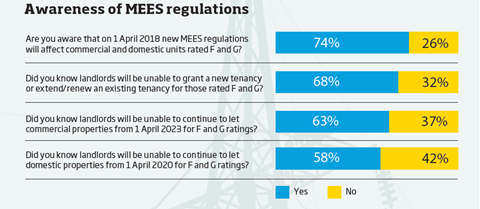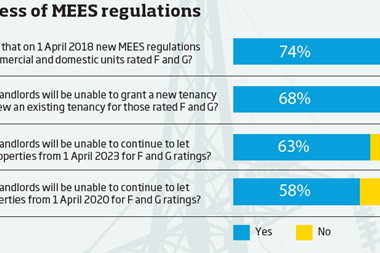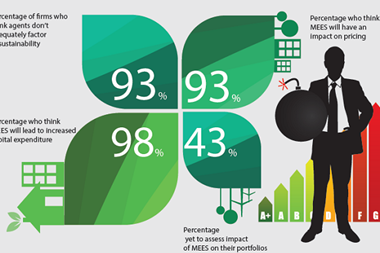With less than one year to go until the new rules take effect, landlords should identify properties that are border-line compliant and carry out fresh EPC assessments. Research has shown that repeat tests can sometimes bring unexpected results.

Worryingly, research published by Property Week has shown that repeat tests can sometimes bring unexpected results – for example, 19% of properties that had previously been rated ‘E’ were rated either ‘F’ or ‘G’ when retested.
Once they understand the full extent of the potential MEES implications applicable to their property portfolio, landlords should consider whether it would be worthwhile investing to bring properties up to standard. They should also bear in mind that the minimum EPC rating could rise to ‘D’ or ‘C’ in the future.
Doing nothing is not an option.
Once the rules apply to the tenancy, the penalties for non-compliance are significant - starting at £5,000, or 10% of rateable value up to a cap of £50,000, and rising after three months.
Before deciding whether to invest to bring properties up to standard or release them onto the open market, landlords should consider the impact this could have on their overall tax liabilities. Under the current CGT regime, individual landlords are required to pay tax on any gain from the sale of a property between 10 and 22 months after it is sold.

Individual landlords wishing to sell more than one residential or commercial property, with existing tenancies in place, could consider doing so in different tax years in order to make the most of their individual annual CGT exemption of £11,300 and to assist cash flow. For example, they could sell one property now and wouldn’t need to pay tax on the gain until the end of January 2019.
They could then sell the second property in the following tax year, or at the end of the existing tenancy agreement. A phased approach is possible because the legislation will only affect new tenancies initially.
Landlords should weigh up their options carefully. They could realise significant value from the sale of some properties, while freeing up cash to invest in the improvement of others.






























No comments yet